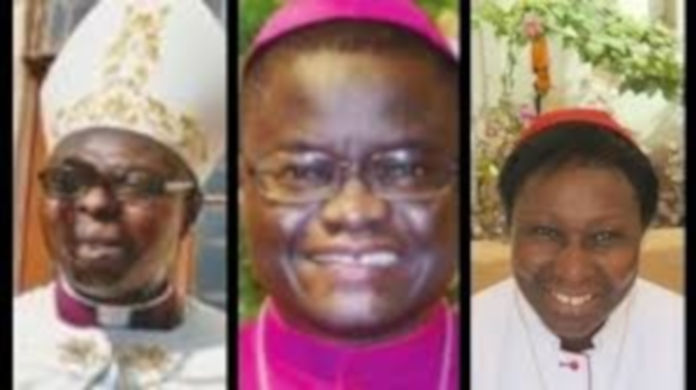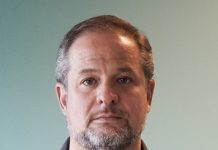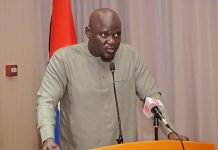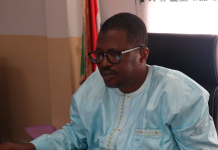The Gambia Christian Council (GCC) held a one-day workshop on Wednesday, 22nd January 2020 titled “The Gambia We Want Dialogue”. During the workshop we revisited the main concerns the Christian Community had with the draft constitution which has been clearly articulated in the position paper submitted to the Constitutional Review Commission (CRC). A review of the campaign activities was carried out by the GCC Campaign Team and a reflection on the impact to date. Some positive impact were noted including: greater unity among the Christian community, greater understanding of the concerns of our Muslim brothers and sisters and national consensus that the Gambia we have known and want to continue is one where both Christians and Muslims continue to live in peaceful coexistence and good neighborliness.
An impact that was of concern to all was the growing religious divide and polarization in the nation with negative communication coming from both sides that is deemed offensive and confrontational. It is for this reason that the Gambia Christian Council considered prudent to pave and pursue a different direction of “Dialogue” aimed at rekindling and rebuilding the spirit of national unity.
Honorable Halifa Sallah, who was invited as the main guest speaker, made the following critical points:“ First, the draft constitution process has moved away from the main issue which was to build a better constitution. As such consideration should have been given to keeping what was good in the 1997 constitution and then the debate should have focused solely on the areas to be amended. Secondly, in a republic all citizens are equal, and everyone has both individual rights and because they belong to groups by virtue of their tribe, gender, religion or age they also have group rights which they expect to be protected by the constitution. Thirdly, the concept of “Secular” or “Non-Secular” Constitution is misunderstood by a large number of the population and to eradicate the confrontations a clear definition of what is meant by a secular state in law has to be given by CRC.” He counseled that the absence of a clear and agreed definition has not helped the debate. Lastly, he advised that no group should be so preoccupied with one or two provisions of the draft constitution to the point of being oblivious of the essence of the whole exercise of drafting a constitution. If the draft constitution is rejected, the 1997 constitution which was tampered with by the former President will continue to be in force as a nation cannot be without a constitution. To avoid the failure of the constitutional reform process, therefore there is a need for two things: 1) Group rights in general and faith-based group rights, in particular, must be clearly identified, openly respectfully debated and reconciled in such a way as to avoid conflict. 2) All parties in the nation should take a deep breath and change course to work together to unpack the debate without deliberately misinforming the people or using offensive language. Honorable Sallah cautioned that “National confrontation would create National chaos; and this is not the Agenda!”.
At the workshop, we the Gambia Christian Council have agreed to take part in this process to find a middle ground and pursue the path of nation building. As a first step, it was resolved that since all faiths have group rights, all should first and foremost define what they want and then negotiate what they could agree in common without sacrificing the group right of the other. In that respect, we have defined the following as “The Gambia We Want” as a Christian community/group:
1. A Secular, Sovereign State, where all citizens are treated fairly on the basis of equality, irrespective of religion, tribe, cast or gender without any citizen or any of their groups being classified as a minority.
2. A nation where all believers including Christians are free to practice their religion and worship their God without fear.
3. An inclusive nation where all citizens including Christians are allowed to participate in politics, the economy and governance.
4. A nation, where the believers including Christians are consulted in matters that concern them before any laws or policies are made; one that provides the environment to participate in the affair of the State and not just be informed. A Nation where we are seen, heard, recognized and respected.
5. A nation which continues to promote religious tolerance and the peaceful co- existence of the communities in particular Christians and Muslims.
6. A nation where no organ of government, whether the executive, legislative or judiciary, will have the power to pass a bill, make a pronouncement or declaration or directive or order to establish any religion as a State religion.
7. A nation where civil law is applied for all civil cases where a Christian is involved or affected.
Secondly, we have committed to identify our rights as a Group in the context of the 1997 constitution without trampling on the rights of other groups.
Finally, we have agreed to reach out to our Muslim brothers and sisters in the spirit of Dialogue to discuss openly and respectfully, with the view to finding a common ground on faith-based group rights. The Gambia Christian Council is therefore grateful to Honorable Halifa Sallah who has agreed to accompany us in this journey to act as an adviser where and whenever needed to facilitate interfaith dialogue on the group rights of our religious fraternity of Christians and Muslims that should in fact act in unison to ensure that no state is created that bars us from holding, promoting and exercising our beliefs. His assurance to make effort to bridge any divide between the Gambia Christian Council and the Supreme Islamic Council is reassuring. We gave commitment to listen and try to understand their own understanding of a secular state and are ready to build consensus on the subject through dialogue. We are also appealing to the CRC and all Gambians to give dialogue a chance and even come onboard to work with all the parties to ensure a successful constitutional reform outcome.




















